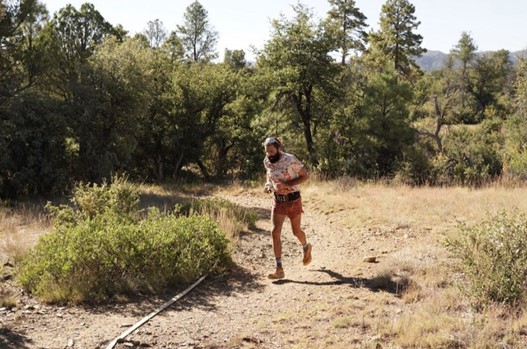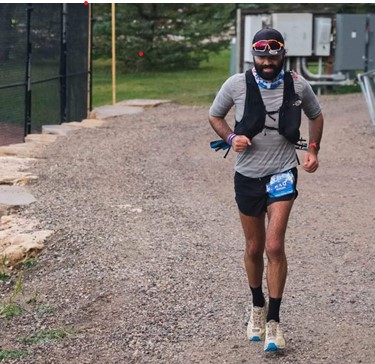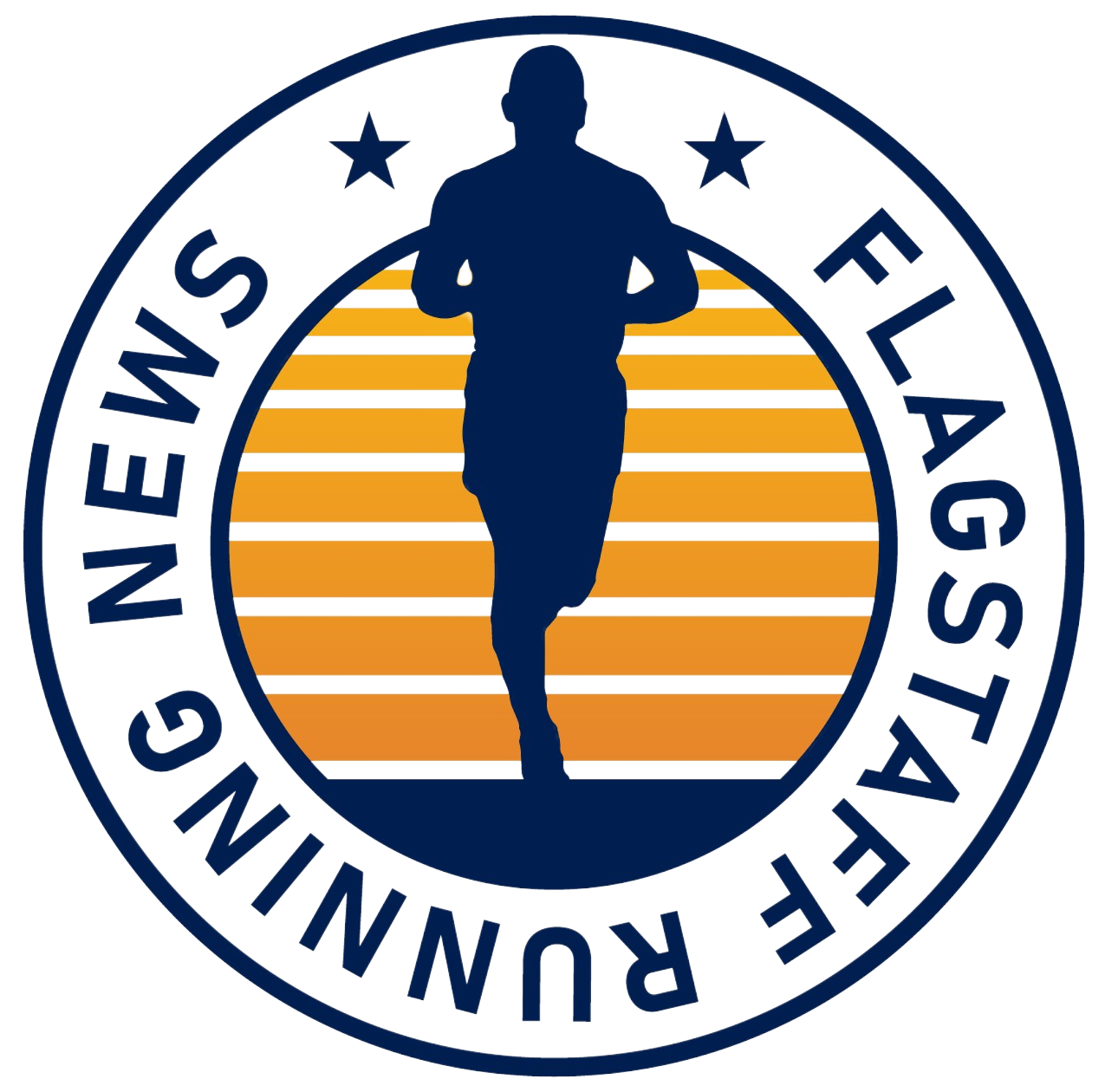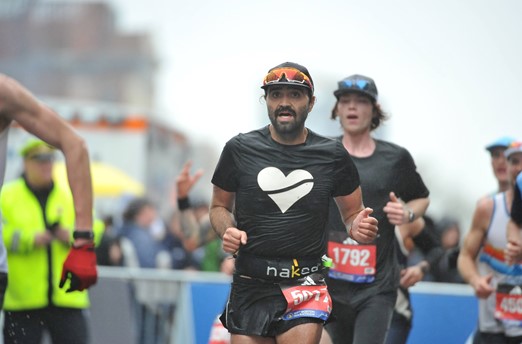This is the first in an occasional series profiling Flagstaff runners who will be competing in early May’s Cocodona 250 race from Black Canyon to Flagstaff.
Not to shirk personal responsibility or anything, but it’s really Sarah Ostaszewski’s fault that Morgan Mahn finds himself in his current situation.
If only Ostaszewski hadn’t been so inspiring, if only she had not won the women’s title at the Cocodona 250 last year, and if only Mahn hadn’t been crewing for her on a tough evening stretch from Dead Horse Ranch State Park to Sedona, then maybe Mahn would not have signed up for this year’s epic sufferfest.
Had it not been for that transformative experience, Mahn, a Flagstaffian since 2021, would have been perfectly content in racing 100-milers on the trail and pursuing his quest to run all six Abbott Marathon majors on the roads.
But no, an ultra-ultra is on the horizon for Mahn in May.
“I don’t know what to expect with the 250,” Mahn, 29, said. “I feel like a lot of us just felt a lot of emotion and excitement crewing for Sarah last year. So, the day after Sarah won, I signed up. It was something I’d been thinking about. That extra bit of emotion probably helped push me over the edge.”
That kind of typifies Mahn’s late-onset running career.
He never really planned to run at all, certainly not long distances; he just wanted to drop a few pounds while in college. But a friend goaded him into signing up for a half-marathon, and the experience served as sort of a gateway-drug to serial racing. First, he conquered the Illinois Marathon in Champagne-Urbana, and that led to Chicago, which led to Boston (twice), which led to Berlin and, this past March, Tokyo.
And all that, in turn, led to moving to Flagstaff to work remotely in the latter stages of the Covid pandemic, which resulted in Mahn hanging up with a bunch of local ultrarunners, including Ostaszewski, which led to 50Ks, 100K, then 100 Milers.
Next thing Mahn knew, he is looking at a multi-day trek from Black Canyon to Flagstaff.
“It’s hard to think of something that’s that long,” he said. “Right now, my main goal is to just finish. From there, maybe I can get under 4 days, between 72 and 96 hours, that’d be cool.”

Though Mahn had no grand plan to become a distance runner, the path he’s taken has been quite successful. He’s enjoyed success both in road and trail races, showing a versatility that’s impressive for a guy who, as a high school kid, thought running was “something that soccer players and weird cross-country runners did, not cool people.”
The above quotation comes from an essay Mahn wrote five years ago for the organizers of the Illinois Marathon, meant to detail his unlikely running rise and inspire others to do the same.
Mahn’s so-called origin story is, no doubt, relatable to many.
Growing up in the suburbs of Chicago, he played football in high school. Running was a punishment for the team. Once he got to college at the University of Illinois, Mahn worked hard as a pre-med major and partied hard as a frat boy. And he ate, and ate, and ate.
The result: weight gain.
When he went to his doctor in 2015 for an annual physical, he tipped the scales at 250 pounds. He knew he’d have to change his life – and his major, too. At that point, Mahn was pre-med, but the courseload proved too onerous, so he switched to a public health major and set out to improve his own health.
It was a turning point.
“The major I was in, it was really tough,” Mahn recalled. “They like to weed people out, so that the people who make it through they’d be set for med school. It took me second semester sophomore year when I ended up with a D in one of the classes. For me, I was always a straight A student and never had to work too hard.
“That was a come to Jesus moment, probably around when my weight was at its heaviest. So, I think it all came together as a rock-bottom moment. Through just trying to lose the weight and get in shape, I started running.”
A college buddy took Mahn aside when he found out that Mahn was considering entering a race – maybe a nice and easy 5K to start. Uh-huh, the friend said. Try a half marathon, telling Mahn that “there’s no point in doing anything shorter.”
When did running go from being a vehicle to lose weight to an avid pastime?
“It was during that first half race, with the people cheering and feeling that accomplishment once you finish,” he said. “Then, I really got into it over that summer training for Chicago, realizing how fun it is to plan something out, training, having something you are working toward.”
“The race is its own beast. There’s a lot of adapting on the fly.”
Morgan Mahn on the Cocodona 250
Distance running does, indeed, attract overachievers and type-A people. Mahn has never been a guy who does anything casually. He jumps in. And moving to Flagstaff from Kansas City – Mahn works for a health-care IT company in data migration — only fed his desire to run long.
Before turning to the trails with fellow Flagstaffians, Mahn did more road racing, which fed his interest in gaining the Abbott six-star designation. It started innocently enough. He ran Chicago, then friends told him how fun the New York City Marathon was, so he ran that.
“I didn’t know the six-star thing was something people did,” Mahn said. “After New York, I ran Illinois Marathon again 2019, my first BQ (Boston qualifier). Then I ran Berlin in 2019, and that’s when it started to become a real goal.”
Last month, Mahn polished off number 5 – Tokyo – in 2 hours 50 minutes 47 seconds. It was a 30-second personal best, but short of Mahn’s goal of getting under 2:50 for a marathon.
That milestone might come next spring when Mahn hopes to get into the London Marathon to complete the six-star designation.
But, for now, he’s training hard for the Cocodona 250.
“It’s mostly been road-specific training getting ready for Tokyo,” he said. “Now, in these last few weeks, it’ll be more on a focus of time on feet, keeping moving. It’s similar to 100-mile training – being outside and long days, in place of heavy effort days. I’ve done training runs on Black Canyon, paced a friend at Black Canyon 100.”
Mahn also has asked Ostaszewski for advice.
“Her biggest strength was just to keep moving,” Mahn said of watching Ostaszewski last year. “The race is its own beast. There’s a lot of adapting on the fly. Pacing Sarah was a cool experience for me. I saw how she took trail naps overnight, just stop, lay down for 10 minutes, or less, then get up and keep on going. Hopefully, I can try to implement that.”
Ostaszewski jokingly admitted to being a “bad influence” on Mahn when it came to ultra-ultras. She thinks he will do well, not only because of his ability but his attitude.
“He’s got range and has an admirable mindset going into all of these different types of events, which all require different training focuses,” she said. “He takes his running seriously, but he can still joke around and laugh about mistakes – learnings — along the way.
“I think feeling inspired to just reach the finish line of something like Cocodona can carry runners a long way, since it really is an accomplishment for a lifetime. Regarding tactical advice, I’d tell Morgan to fuel early and often — he’s already good at this — and not worry about the competition too early. You really do have to run your own race and adapt along the way. Sleep can be a huge factor and seriously affect your performance in the second half of the race, so I would tell Morgan to sleep when he needs to and not worry about taking extra time to do so — it’ll pay off in the long run.”
And Mahn certainly seems in it for the long run. He’s become a fixture on the local trial scene as a member of Peak Trail Runners (formerly known as “Will Run for Beer”).
“He seems to know everyone and he’s great at staying in touch and inviting folks out for a run or coffee or Pizzicletta,” Ostaszewski said. “Morgan truly is a genuinely good guy who’s down to try anything.”
For Mahn’s part, he said he doesn’t see himself doing too many 100-plus-mile races after Cocodona. “I think I’d like to stay in the 100-mile distance,” he said.



Leave a Reply